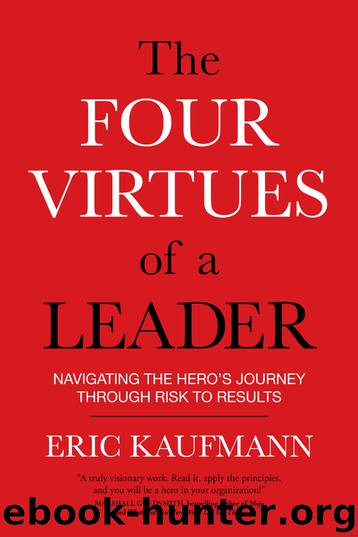The Four Virtues of a Leader by Eric Kaufmann

Author:Eric Kaufmann
Language: eng
Format: epub
Publisher: Sounds True
Grit Survey
The hero’s journey is a quest filled with challenges and problem solving, resulting in a meaningful prize. It is a pursuit of success and the ability to produce results. Successful leaders guide a community through uncertainty toward a desirable shared vision. What, then, is the single trait that separates successful from unsuccessful people?
Dr. Martin Seligman has researched aspects of this very question since the 1960s. Seligman’s early work led him to describe a state he called learned helplessness. Learned helplessness refers to a psychological condition in which a person has learned to behave helplessly in a particular situation, usually after experiencing some inability — either perceived or real — to avoid an adverse situation. This condition contrasts sharply to the heroic mind-set.
Seligman’s research then turned to understanding optimism, the opposite of learned helplessness. His results led to the codification of a field of psychological study now referred to as Positive Psychology. In his 2012 book Flourish, Seligman uses the acronym PERMA to describe the five essential elements for experiencing lasting well-being:
•Positive emotion: focusing on gratitude by writing down at day’s end three things that went well, and why
•Engagement: becoming immersed in work and using your strengths to perform daily tasks
•Relationships: honoring your nature as a “social being” and forming relationships that matter
•Meaning: serving a cause and belonging to something bigger than yourself
•Achievement: committing to bettering yourself and recognizing that determination counts for more than IQ
Dr. Angela Duckworth was a student of Seligman’s at the University of Pennsylvania. She focused her attentions on achievement — one aspect of positive psychology and PERMA — and attempted to answer the question: What is the single trait that separates successful from unsuccessful people? Duckworth and her colleagues focused on a recognizable group of high achievers — incoming cadets at West Point Academy. In order to gain admission to West Point, candidates must apply directly and receive a nomination from a US senator or representative. The cadets are officers in training. Of the approximately thirteen hundred cadets who enter the academy each July, about one thousand graduate.
West Point holds a vested interest in quickly determining which cadets will succeed enough to become officers, and the academy has spent millions of dollars on decades of research developing a comprehensive battery of tests that will predict success. They created the Whole Candidate Score, which combines academic grades, a gauge of physical fitness, and a Leadership Potential Score to discern which cadets are most likely to make it through the demands of West Point and become a successful army officer.
Duckworth’s research led her to the conclusion that the greatest predictor of success was grit, a combination of perseverance and passion for long-term goals. Duckworth and her colleagues formulated a twelve-item Grit Questionnaire, which they administered to the West Point cadets alongside their Whole Candidate Score tests. It surprised the West Point brass to learn that the Grit Questionnaire predicted success and failure more accurately than the academy’s battery of tests did.
Grit, or the passion and perseverance for
Download
This site does not store any files on its server. We only index and link to content provided by other sites. Please contact the content providers to delete copyright contents if any and email us, we'll remove relevant links or contents immediately.
The Compound Effect by Darren Hardy(8904)
Tools of Titans by Timothy Ferriss(8347)
Nudge - Improving Decisions about Health, Wealth, and Happiness by Thaler Sunstein(7678)
Win Bigly by Scott Adams(7171)
Deep Work by Cal Newport(7040)
Rich Dad Poor Dad by Robert T. Kiyosaki(6576)
Principles: Life and Work by Ray Dalio(6383)
Pioneering Portfolio Management by David F. Swensen(6273)
Digital Minimalism by Cal Newport;(5740)
The Barefoot Investor by Scott Pape(5729)
Grit by Angela Duckworth(5576)
The Slight Edge by Jeff Olson(5397)
Discipline Equals Freedom by Jocko Willink(5357)
The Motivation Myth by Jeff Haden(5191)
You Are a Badass at Making Money by Jen Sincero(4905)
The Four Tendencies by Gretchen Rubin(4586)
Eat That Frog! by Brian Tracy(4499)
The Confidence Code by Katty Kay(4237)
Bullshit Jobs by David Graeber(4161)
